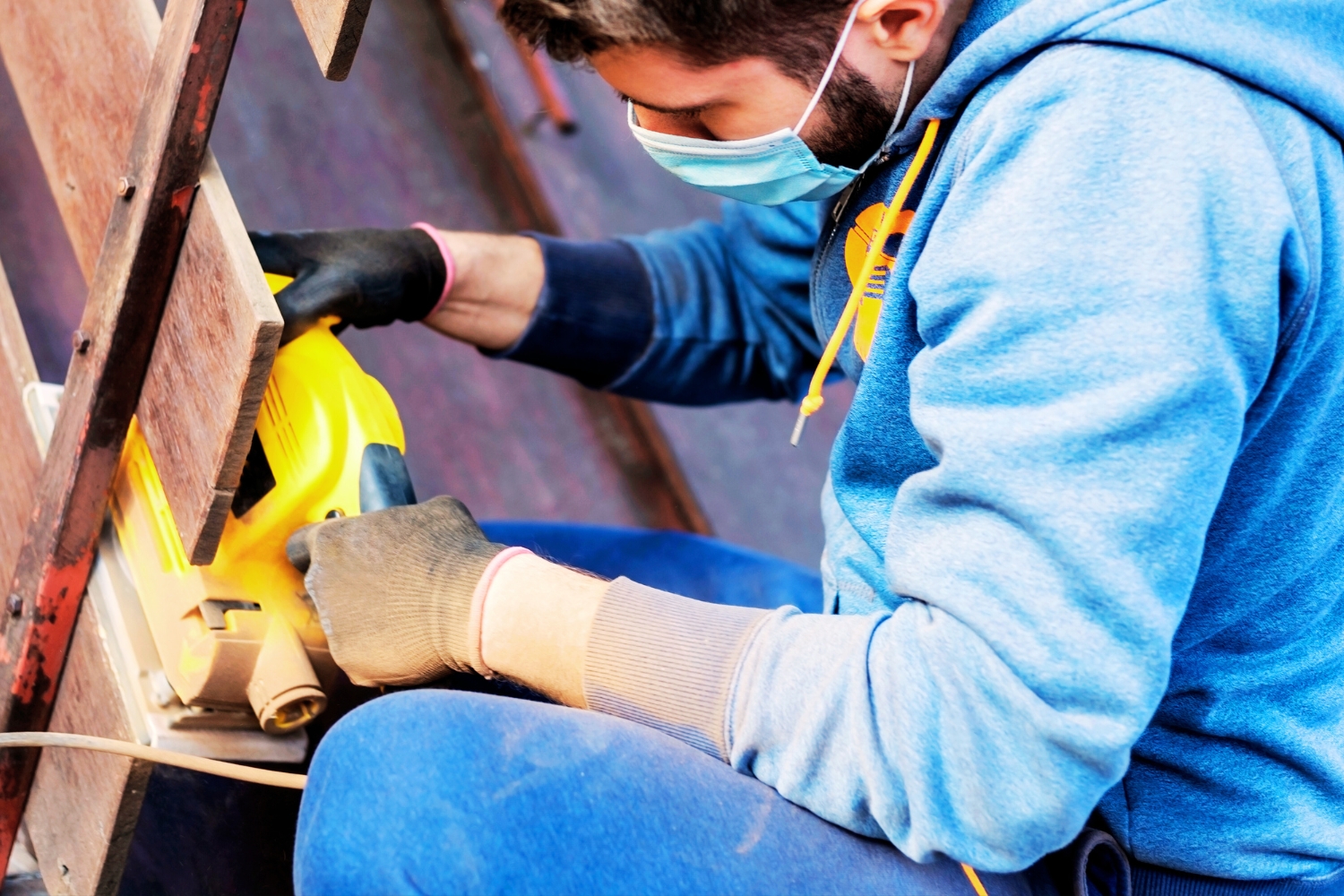
Home Improvement Loans: What You Need to Know

For homeowners planning to renovate or remodel their property, finding the right financing option for your home improvement projects is crucial.
The first thing that may come to mind is the home improvement loan— but this term is often used as a catch-all for several different types of loans. By understanding the various loans out there, their advantages and disadvantages, and the factors that impact loan terms, you can make informed decisions when financing your home improvements.
We’re here to guide you to the right product for you. Let’s dive in!
What is a home improvement loan?
The topic of home improvement loans can be a little confusing for one big reason: home improvement loans can refer to a very specific type of loan or simply be used to describe any loan that is often used for the purpose of home renovations and repairs.
For instance, at Amplify Credit Union, we offer a specific loan product called a Home Improvement Loan, designed for homeowners looking to work with a contractor for home improvement products. However, we also offer home equity loans, home equity lines of credit, and Homeowner Express Loans— all of which can be used for improving your home.
How do home improvement loans work?
How your home improvement loan works depends on your lender and the specific loan you get.
At Amplify, our home improvement loan offers a quick closing process and a competitive rate. The loan is unsecured, meaning your home won’t be used as collateral, and it is specifically designed for those working with a contractor on an owner-occupied property. (That means you plan on undertaking a DIY project or renovating an investment property, this isn’t the loan for you.)
Applying for a home improvement loan is similar to most other loans. You’ll need to provide information like your credit score, proof of income, and any debts you may have. The most notable difference is that you’ll be required to submit documentation from a contractor about the projects you want to complete and their estimated cost.
Other Loans for Home Improvement
Of course, a loan doesn’t have to be called a home improvement loan for you to be able to use it for renovations and repairs. Here are some other types of loans to explore when embarking on a new project.
Home Equity Loan
A home equity loan allows homeowners to borrow against the equity they have built in their property. It provides a lump sum of money that can be used for any purpose, including home improvements.
Home equity loans typically come with fixed interest rates and a predetermined repayment period. The loan amount is determined based on the available equity in your home. This type of loan is suitable if you have substantial equity in your property and prefer a predictable repayment plan. And, because your home is used as collateral for a home equity loan, it often comes with lower interest rates.
Home Equity Line of Credit (HELOC)
Similar to a home equity loan, a home equity line of credit (HELOC) taps into your home’s equity. But unlike a home equity loan, HELOC is a revolving line of credit that allows homeowners to borrow money as needed, similar to a credit card. With a HELOC, you have a set credit limit, and you can borrow from it multiple times during the draw period, which is typically several years.
The interest is variable, and you only pay interest on the amount you borrow. HELOCs offer flexibility, making them great for ongoing projects or do-it-yourself renovations.
Personal Loan
Another type of general loan that can be used for home renovations is the versatile personal loan.
These loans are often unsecured (although you can find some that can be secured with deposit accounts, such as a CD or savings account) so you won’t have to put up your home as collateral to qualify. Instead, lenders will look solely at factors like your creditworthiness, income, and debt.
Personal loans can be a good option if you don’t have significant equity in your home or prefer not to use your home as collateral. However, they often come with higher interest rates, which can cost you more in the long run.
Homeowner Express Loan
The Homeowner Express Loan is a custom personal loan designed specifically for homeowners at Amplify Credit Union.
Designed to be a flexible option for homeowners, it allows you to borrow up to a certain amount (up to $40,000) without any restrictions on usage. It’s not secured by your home, but is a special rate for homeowners in particular. The application process for Homeowner Express Loans is typically faster, with approval and funding often possible in as little as one business day. It is an excellent option for homeowners who need quick access to funds for various home improvement purposes.
Finding the Best Loan for You
When choosing the best loan for your home improvement project, it’s important to consider several factors.
1. Evaluate where you stand.
First and foremost, evaluate your financial situation and determine how much you need to borrow. Consider your credit score, income, and existing debt obligations to understand which loan options are realistically available to you.
2. Compare your options.
Next, compare the interest rates and repayment terms of different loan options. Lower interest rates can save you money over the life of the loan, while longer repayment periods may offer more affordable monthly payments. Additionally, assess the flexibility of the loan terms, such as the ability to make extra payments or pay off the loan early without penalties. Carefully review any fees associated with the loan, such as origination fees or prepayment penalties.
3. Consider specific requirements.
Finally, consider the specific requirements of each loan type. Some loans may require you to work with contractors or have a certain amount of equity in your home. Make sure you fully understand what each type of loan requires.
Take It Step by Step
Just like a home improvement project itself, finding the right financing for your needs is a step-by-step process. By understanding the basics of each type of loan, you can make an informed decision and choose the best loan for your home improvement project.


